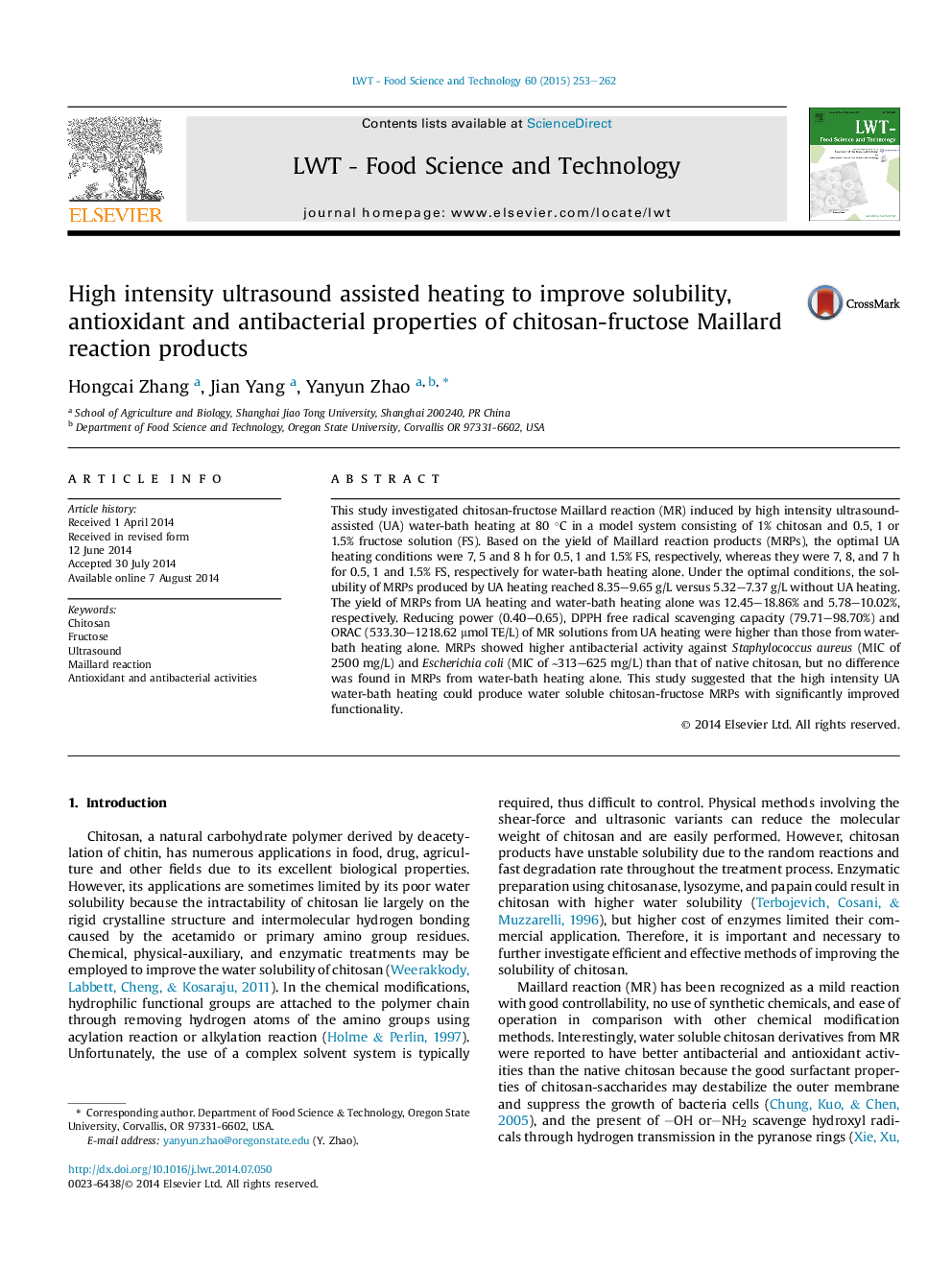| Article ID | Journal | Published Year | Pages | File Type |
|---|---|---|---|---|
| 6402862 | LWT - Food Science and Technology | 2015 | 10 Pages |
â¢High intensity ultrasound assisted (UA) heating improved chitosan-fructose Maillard reaction.â¢UA heating increased solubility and antioxidant activity of Maillard reaction products (MRPs).â¢Structural and thermal properties of MRPs were characterized.â¢UA Maillard reaction conditions were statistically optimized.
This study investigated chitosan-fructose Maillard reaction (MR) induced by high intensity ultrasound-assisted (UA) water-bath heating at 80 °C in a model system consisting of 1% chitosan and 0.5, 1 or 1.5% fructose solution (FS). Based on the yield of Maillard reaction products (MRPs), the optimal UA heating conditions were 7, 5 and 8 h for 0.5, 1 and 1.5% FS, respectively, whereas they were 7, 8, and 7 h for 0.5, 1 and 1.5% FS, respectively for water-bath heating alone. Under the optimal conditions, the solubility of MRPs produced by UA heating reached 8.35-9.65 g/L versus 5.32-7.37 g/L without UA heating. The yield of MRPs from UA heating and water-bath heating alone was 12.45-18.86% and 5.78-10.02%, respectively. Reducing power (0.40-0.65), DPPH free radical scavenging capacity (79.71-98.70%) and ORAC (533.30-1218.62 μmol TE/L) of MR solutions from UA heating were higher than those from water-bath heating alone. MRPs showed higher antibacterial activity against Staphylococcus aureus (MIC of 2500 mg/L) and Escherichia coli (MIC of â¼313-625 mg/L) than that of native chitosan, but no difference was found in MRPs from water-bath heating alone. This study suggested that the high intensity UA water-bath heating could produce water soluble chitosan-fructose MRPs with significantly improved functionality.
